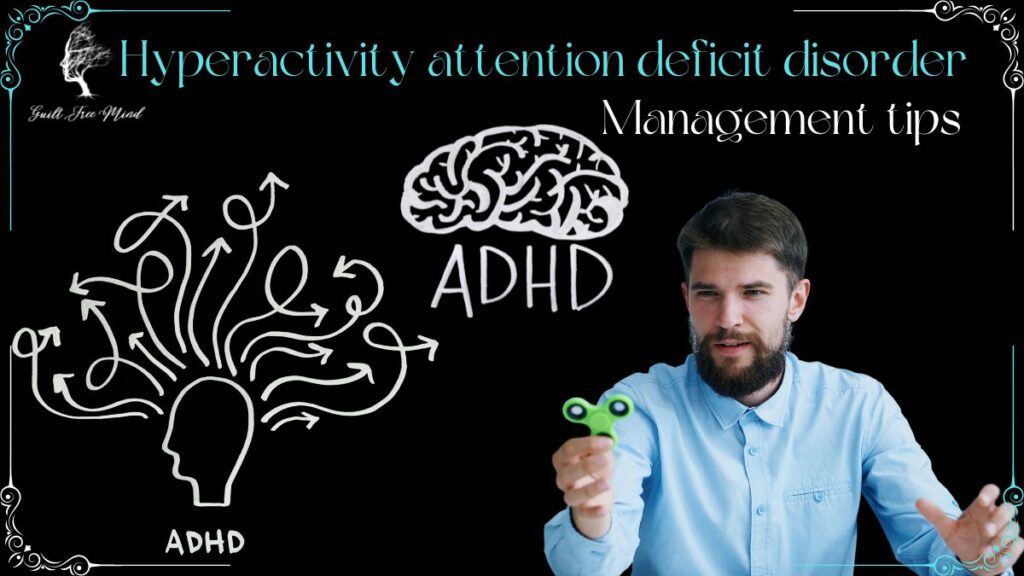Hyperactivity attention deficit disorder or attention deficit hyperactivity disorder (ADHD) is a type of neurodevelopmental disorder. Such neurodevelopmental disorders can affect individuals belonging to any age. However, the diagnosis most commonly occurs in children. This disorder is normally characterized by the presence of persistent patterns of hyperactivity impulsivity and inattention. This can severely impact the individual’s capability of functioning in their day-to-day lives.
Table of Contents
Impact of hyperactivity attention deficit disorder.
The impact of hyperactivity attention deficit disorder can vary depending on the individual. However, the effect can be significant and impact many areas of the person’s life. The following sections cover some of the ways in which ADHD can wreak havoc on an individual’s life.
Work and academic performance
Since hyperactivity attention deficit disorder can have a serious impact on a person’s focus, the disorder can make it extremely difficult for the affected person to pay complete attention to and complete their task. It is impossible for such people to perform well in their academics, office work, meet deadlines, see projects through to completion, etc.

Impact on social relationships
Those who suffer from ADHD have a constant battle with impulsivity. They may interrupt others’ speech without wanting to. They may suddenly abandon plans with friends in order to pursue a new idea that has taken root in their heads. Such actions make it hard for such people to maintain social relationships. Affected individuals also have a very hard time understanding social cues and engaging in the right form of social behavior.
Daily tasks
Following a routine is a tough task for those suffering from ADHD. They struggle with grocery shopping, cleaning their house, paying bills, maintaining commitments, etc. They also struggle to manage their time and are frequently late to meetings or forget entirely about them.
Regulation of emotions
Hyperactivity attention deficit disorder affects an individual’s capability of regulating and controlling their own emotions and responses. Such individuals experience a higher frequency of mood swings than others. They also struggle to control their anger. Their inability to control emotions causes them to face more chances of developing anxiety and depression.
Problems with physical health
Those with ADHD find it extremely hard to adhere to the norms of a healthy lifestyle. Due to their distractibility, impulsivity, and hyperactivity, they find it extremely hard to maintain a healthy diet, eat at proper times, get enough sleep, exercise and finally stay in tune with the needs of their body.
Management of hyperactivity attention deficit disorder
Standard therapy options in the case of ADHD involve behavior therapy, medication, and education services. In most cases, these treatments can be effective in relieving many symptoms of ADHD. However, these are not ways to cure ADHD. It may take a while to figure out what works best for you or your child. Let’s understand the different ADHD management methods in detail.
Medications
For the management of hyperactivity attention deficit disorder, psychostimulants are the most common drugs of choice. Stimulants work by boosting and balancing the levels of neurotransmitters in the brain. These medications help improve the signs of ADHD like hyperactivity and inattention. When given for a short period of time, these medications have proven to be extremely effective.
Some common examples of psychostimulants are:
Amphetamines
amphetamines most commonly include dextroamphetamine, dextroamphetamine-amphetamine, and Lisdexamfetamine.
Methylphenidate
This category includes drugs with compositions like methylphenidate and dexmethylphenidate.
Most stimulant drugs are available in two forms: short-acting and long-acting. Some long-acting drugs like long-acting patches of methylphenidate are also available. These can be worn on the hip. They will keep releasing the drug in small doses.
The correct dose of the drug will depend on the intensity of the symptoms that the person experiences. Thus, it may take a while for your mental health practitioner to find out the correct dose for your symptoms. Enquire about the possible side effects of the psychostimulant agent before you start.
Health risks of psychostimulants
Latest research has indicated that if ADHD stimulant medications are administered, they may cause a risk of heart issues in the person. There is also a chance that certain psychiatric symptoms may be heightened when a person is under the influence of stimulant medications.
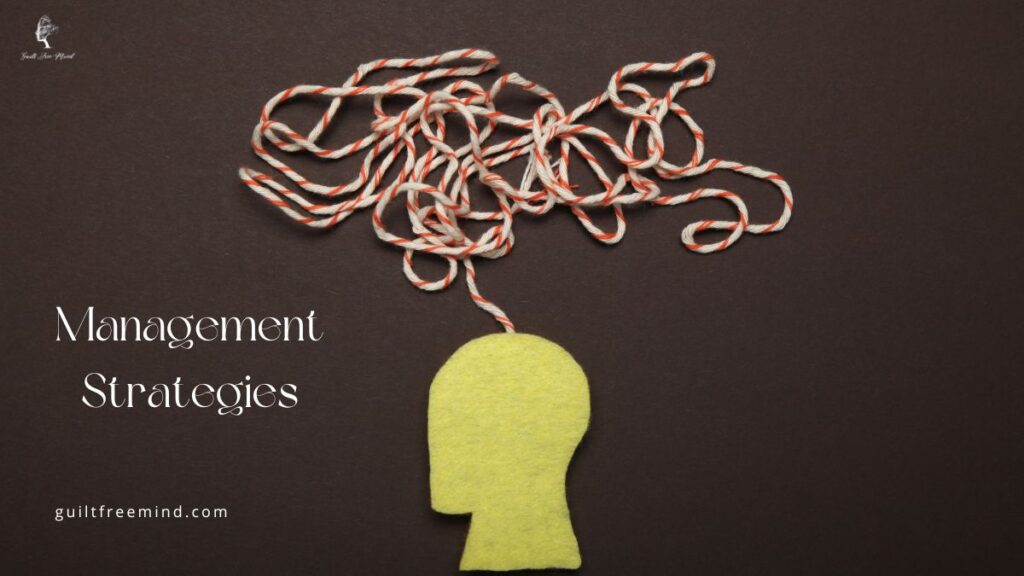
Heart issues
Constant use of psychostimulant medications may cause an elevation in the heart rate or blood pressure. So there is no scientific proof for sudden deaths or serious adverse effects occurring due to the intake of this drug. However, before such a drug is administered, the psychiatrist must evaluate the patient for signs of any cardiac maladies or the presence of a family history of heart conditions.
Psychiatric issues
Psychostimulant medications do not usually cause an increase in the risk of psychotic, manic, or agitation symptoms. In case you suddenly start experiencing weird behavior or worsening of the symptoms after you start using the drug, do not stop the medication yourself. Instead, consult your psychiatrist immediately so they can change the drug.
Other medications used for ADHD treatment
Some of the other medications used in the treatment of hyperactivity attention deficit disorder are:
- Atomoxetine
- Guanfacine
- Clonidine
- Antidepressants like bupropion
Antidepressants and atomoxetine tend to work slower than stimulant drugs. These drugs may need a few weeks before they start to show an effect. If, for any reason, you cannot use psychostimulants, these can serve as good alternatives.,
Myths about hyperactivity attention deficit disorder
Only medicines can help solve my ADHD
Medicines can make it easier for you to manage the symptoms of ADHD. However, they are not the only solution. Medicines can be administered. But they should be paired with self-help strategies and other treatment methods.
Since I have ADHD, it means I am either unintelligent or too lazy. Thus, I cannot help myself.
There is a possibility that the effects of ADHD make you feel lazy and incompetent. However, this is far from the truth. Your disorder tends to get in the way of your normal tasks. There are strategies you can use to combat these issues.
Going to a mental health practitioner will solve all issues
Mental health professionals can guide and help you better understand ADHD symptoms. However, they do not have a magic drug that can solve all your problems. You are the only person who can utilize the strategies mentioned here to make your life easier.
ADHD is a life prison. I’ll always pay the price
It is true that there is no proven cure for ADHD yet. However, there are many things you can do to reduce the problems caused by ADHD. Once you adapt to the strategies mentioned here, you will notice that handling the symptoms of ADHD is not that difficult.
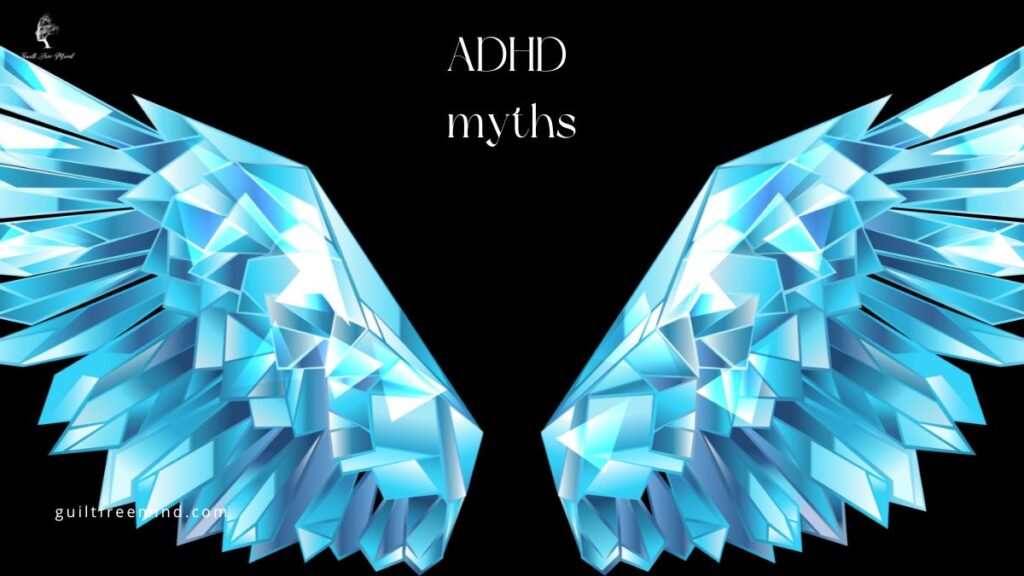
Keeping up with daily activities when you have hyperactive attention deficit disorder.
In case you are a victim of hyperactivity attention deficit disorder, every small task ranging from paying the electricity bill to hanging out with your friends, family, and other social obligations may seem to be too overwhelming.
ADHD can not only be challenging in the different aspects of life, but it can also make it difficult for you to keep tabs on your health. Furthermore, you may forget your personal and job commitments too. These symptoms can lead to a high frequency of procrastination, impulsive behavior, and difficulty meeting deadlines. Finally, last but not least, you may feel that your family and friends do not understand the battle you have to undergo on a daily basis.
However, it’s not just dark clouds in your future if you have hyperactivity attention deficit disorder. There is a silver lining to this. There are skills that you can learn. These skills will help you better manage the symptoms of ADHD. They will help you improve your everyday habits, use your strengths to your advantage, and finally develop new techniques that will allow you to efficiently work, interact with others better, and finally maintain an organized schedule and workplace. By helping yourself, you will also learn and gain more insight into this disorder. You can use this information to educate others and help them understand what you are going through on an everyday basis.
One thing you must remember is that the changes you are aiming for will take time to start taking effect. The strategies mentioned here will require patience and a positive attitude. If you focus on using these methods every day, you will be more in control of your own life. This will also boost your self-esteem.
Tips to manage hyperactivity attention deficit disorder
Tip to better organize and control clutter
One of the hallmark symptoms of ADHD is distractibility and inattention. This makes staying organized one of the biggest challenges a person suffering from ADHD will ever face. If you suffer from hyperactivity attention deficit disorder, the thought of organizing your workspace, kitchen, bedroom, etc. makes you feel overwhelmed.
Fear not! There is a way you can combat this problem. The first step is to follow a systematic approach to organizing your tasks. If you have a large task, break it down into smaller chunks. Space out these work chunks into different times of the day. Use the reminder feature of your phone to remind you about the task and maintain a to-do list to keep track of what you have finished and what remains. This will help you stay organized and reduce clutter.
Develop neat habits and structure,
Before you embark on the journey of organization, start with categorizing the objects you plan to organize. Decide which objects are necessary and which are not. For the items that you do not need, remove them from the workspace. Make notes about which items you are keeping and which you are discarding. Make a list of which item must go where and then start organizing. Maintain a daily routine to tidy up organized places to avoid future litter.
Focus on creating a space
Take a paper and write down what you need on a regular basis. Only those items must be in your workspace. Make a list of the items you are removing. Get storage bins and store the non-regular items in them. Make a list of what items her bin has. Stick the list in the bin. This way when you go looking for an item later, you will not have to ransack every bin in the cupboard. Designate specific regions in your house for keeping everyday items like bills, keys, etc. so that they can be found at a moment’s notice. Throw away the items that you don’t need.

Set reminders
If you are reading this blog, you are either using a laptop, desktop, phone, or tablet. Make use of these devices and set reminders to finish different chores around the house and regarding your work. Before you set reminders, use a planner and make note of all the tasks you wish to complete. Then set the reminder on your phone with the task name. Effective use of reminders and calendars can help you track deadlines and remember your appointments. If you have to do a task at regular intervals, then you should set a daily or weekly reminder.
Make use of lists
Lists can help you stay on track with your daily tasks, appointments, projects, and deadlines. If you use a planner, make sure that the lists and notes are kept inside the planner.
The right time to work is now
Stop postponing your tasks. This increases the chances of you forgetting about the task later. Thus, the moment the reminder reminds you of a specific task, do it. Do not delay the work. In case you are in the middle of a task and must finish it before starting a new one, hit the snooze button. Do not stop the alarm.
Tame the paper trail
Those will ADHD have a monstrous paper trail. This is one of the major aspects of the disorganization problem. Therefore, this must be tackled as soon as possible. Focus on setting a daily system so that you can stay on track with all tasks.
How to tame the paper trail?
Deal with the mail regularly
In your daily planner, one task should be to check mails and emails. It does not take beyond a few minutes to check emails. Sort through your daily mail the moment you get them. Keep a designated spot for them once they have been sorted. You can either trash it, file it, or respond to it.
Go paperless
Focus on going paperless. This way you will have less amount of paper to deal with daily. Request for e-bill and electronic statements instead of physical mail. The time taken to respond to electronic media is less than sending a response via physical media.
Get up a system of filing so you can stay on track
You can either use file dividers or opt to get completely separate folders for each of your document types. One folder can harbor bills. The other one can have medical records. A third one can have your income statements and so on. Label and color code the files so that you can easily find what you need.
Tips to manage time and stick to schedule
Another big struggle if you are facing ADHD is managing your time effectively. You most often lose track of time, procrastinate, miss deadlines, and are unable to figure out how much time a task may require. You may also catch yourself doing tasks in the wrong manner or order.
Those suffering from hyperactivity attention deficit disorder may experience moments of hyperfocus. During this time, they focus on their current task so much that no other task gets done. Such issues may make you feel like others are impatient, or that you are not given enough time to finish your tasks. Overall, this can have you feel incompetent.
Those with adult ADHD have an extremely different perception of the time passing by. In order to properly stay on track with the time, you must put your faith in a clock.
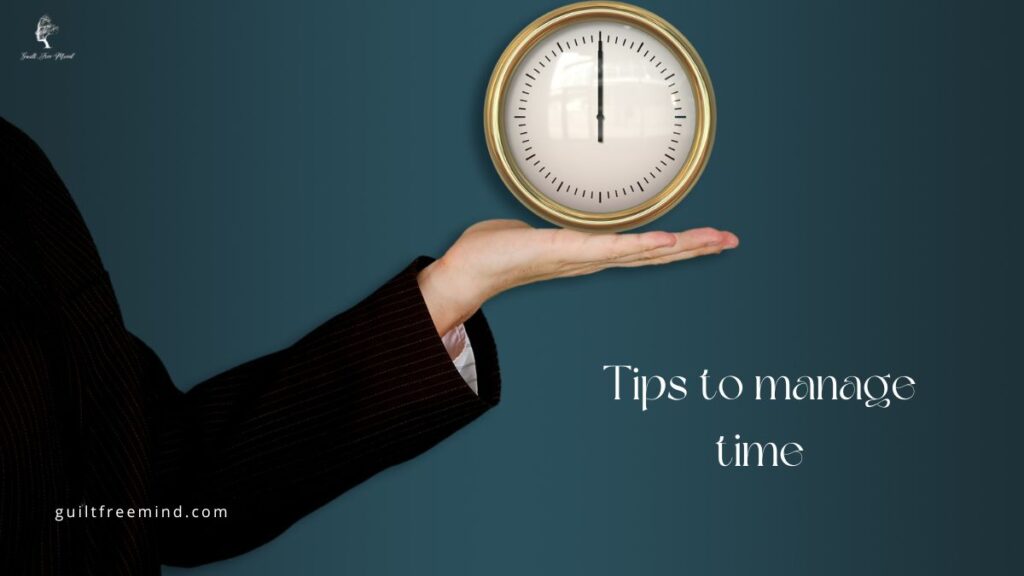
Become a clock watcher
With the advent of smartphones, this strategy has become fairly easy. You can set your smartwatch to vibrate every ten minutes. Thus, when the watch vibrates, you will know 10 minutes have passed. Alternatively, you can also keep your focus on a big dial wristwatch or a very visible wall clock. When you start a task, make a note of the time and say it out loud to yourself.
Use timers
The best way to prevent the loss of time is to use an alarm or a timer. Set the timer or alarm to ring after a certain amount of time has passed. This will tell you how much time you have already spent on the task so far. If you have a task that will take a considerable fraction of your time, you can set the alarm to ring at specific intervals so you know how much time has gone by.
Give yourself more time than you think you need.
Adults with hyperactivity attention deficit disorder find it very hard to figure out how much time a specific task might need to finish. Thus, always give yourself extra time to work. If it seems that a task will take 30 mins, give yourself 40 mins to actually finish it. For every 30 minutes, provide yourself a time cushion of 10 extra minutes.
Try being early
Those with ADHD find it hard to get to places on time. it would be easier if you try reaching places before time. Focus on getting to a meeting 15 mins ahead of schedule. Set up multiple reminders on your phone so that you are reminded to pack up everything you may need before time. This way you can avoid looking for the car keys right when you are supposed to leave.
Tips for prioritization of tasks
Those with hyperactivity attention deficit disorder find it impossible to control their impulses. They are known to jump from one task to another before finishing the first task. Thus, for them completing one task at one go is impossible and overwhelming. Here are some tips that can help overcome this problem:
Decide the succession
In your planner, number the tasks. Do the tasks as per numbers. The urgent and important tasks must be placed before the lighter or unimportant ones. When making your to-do list, ask yourself, which task should you do first? Finish the prioritized task first. Then work on the other priorities.

Work on one thing at a time
You can divide the large task into smaller chunks beforehand and space them throughout the day. However, once you start working on one task, don’t stop till you have finished the section you had assigned to yourself.
Stay on the tasks
Do not get sidetracked by your impulses. Keep a notebook with you and write down the impulses/other tasks that are bothering you. You can get to these once your current task is over. use a timer with a label so you know which task you are on. Alternatively, you can use a whiteboard. Put down the current task on the whiteboard. This way, when you get the impulse, you can look at the whiteboard and remind yourself about the task you have to currently focus on.
Learn to say No
Those with ADHD are not the only ones who struggle to say No. We are brought up in a manner where we are taught to always say yes to others. However, those with ADHD tend to try and take on too many projects at once or agree to many social engagements. However, leaving no room for yourself can make you feel exhausted, overwhelmed, and overtired. Thus, learning to say no can help you finish more tasks on time, commit to your social dates, and have a healthy lifestyle overall. The best way to do this is to check your schedule before you say yes.
Tips to manage bills and money
Money management is another factor where people without ADHD also have to struggle. Since management of money requires organization, planning, and budgeting; for adults with ADHD, it can be extremely difficult and exhausting. Most of the common methods of managing money won’t work for such individuals since it requires too much paper, time, and focus on the details. However, one easy way to manage this problem is by making your own system that is consistent and simple. This can help you prevent overspending, penalties, and overdue bills.
Control the budget
For this, you must first assess your financial situation. This is the first step in getting the budget under control. Following this, you must start tracking every expense. It does not matter how small the expenditure is, it must be tracked. There are many apps that allow users to track expenses. Such apps can allow you to effectively monitor the budget and find out where the money might be going. You may have a surprising revelation about all the impulse expenditure you have done so far. Use this snapshot to keep track of your spending habits and avoid unnecessary expenditures.

Next, work on identifying how to avoid straying from the budget. Eg: if you are overspending on eating outside, allocate more budget to your grocery and meal preparation methods.
Simplify the bill payment and money management system
Try to take your money management strategy online. Tracking your budget on a computer means less paperwork, no messy handwriting, and no misplacement of slips. Add to your planner a specific time when you will work on the budget every day. During this time, add in all your expenditures during the last 24 hours.
Move to online banking
This will prevent the hassle of going to the bank and finding out where you spent how much. Online banking can make money management a breeze. You’ve online banking information will be available on apps that can be used from smartphones as well. In case you have monthly bills to pay, you can set up automatic payments for those. No misplaced envelopes or lati pers t deal with.
Bill pay reminders
Set up reminders for bill payments electronically. You can either use email or text reminders for this purpose. Add the reminders so your google calendar app so that you are always reminded of the correct date and time.
Use technology
Technology is a boon that must not be ignored. There are many free services that allow you to track your accounts and finances. These may take a while to set up, but they are extremely efficient in the long run.
Stop impulse shopping
Hyperactivity attention deficit disorder and shopping is an extremely volatile combination. Your impulse can put you under a debt burden and make you feel incompetent and ashamed. Here are a few strategies that can help you control your impulse shopping
- Don’t bring your checkbook or credit card; instead, just use cash.
- Discard everything but one bank or credit card. Make a list of everything that you need before going shopping, and adhere to it.
- Keep track of your spending when shopping with the help of a calculator (pro tip: your phone probably has one).
- Avoid places where you know you’ll be tempted to spend too much money
- Unsubscribe from any shopping-related emails.
Tips to maintain concentration and focus on studies/job
Workplace difficulties are unique for those with ADHD. You may be required to do things all day that are particularly challenging for you, such as staying organized, finishing work, sitting still, and listening calmly.
Managing ADHD symptoms and performing well at work is difficult, but it is possible to do so by adapting your working environment to make the most of your strengths and minimize the effects of your weaknesses. The first step in this is to get your workplace in order.
Get your workplace in order.
To start, schedule some time every day to keep things in order. Every day, take five to ten minutes to clean up your desk and put things in order. It’s preferable if you get to the office a bit early and get your workplace cleared before you start your work day. Experiment with keeping items (that you don’t need regularly) out of sight by placing them in drawers or bins around your workstation.
Make use of highlighting and bullet points.
People with ADHD may find that color-coding to be very helpful. Highlighting and using sticky notes will allow you to keep your focus on the task at hand. If you tend to forget things, writing them down can help. Planners can also help you stay on track.
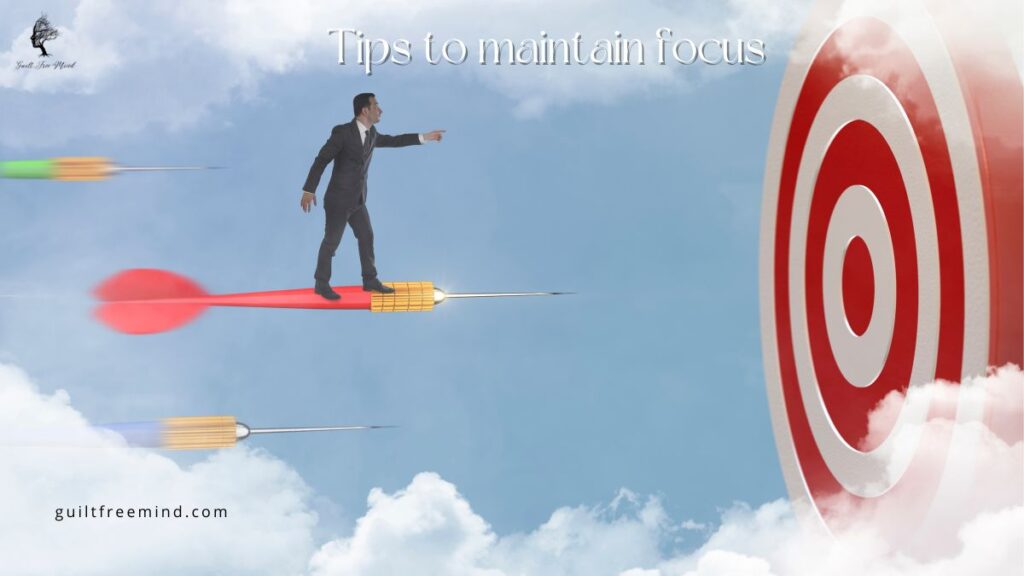
Prioritize.
When making a to-do list, prioritize the items that need to be completed first over those that can wait. Establish deadlines, even if they are only imposed by you. Try to finish the task a few days before the deadline.
Remove distractions
The environment and the things around you have a big impact on how much you get done when you have attention problems. Tell your coworkers that you need quiet time to focus, and use these strategies to reduce interruptions:
- Work from an empty office or conference room if you don’t have your own workspace.
- To get the most out of your time at a conference or presentation, get a seat towards the front and away from those who like to chatter.
- Keep your workspace uncluttered and sit with your back to a wall. A “Do Not Disturb” sign would be helpful in this situation.
- Put your phone on voicemail and check it when you have time.
- Disable your email and social media accounts for a while, or even go offline for a while.
- Noise-canceling headphones with a white-noise generation app may help if ambient noise is a problem.
Save the ideas for later
Put off the major thoughts for now. All those brilliant ideas and plans of action that keep creeping into your head? Put them down on paper or in your phone’s notepad to think about later. People with ADHD may find it helpful to set aside some time at the day’s end to review all the notes they’ve taken.
Try to get it in writing.
Request a copy of the materials (such as an agenda or lecture outline) that will be used in any event/classroom in advance. Use the written notes as a guide for attentive listening and note-taking during the meeting. Taking notes as you listen will force you to pay attention to what is being said.
Perform as instructed.
If you want to make sure you understood someone’s spoken instructions, repeat them after they’ve been given to you. This will reinforce the instructions in your head. It will also help clear up any confusion you may have.
Move around
If you find yourself getting antsy or fidgety, getting up and moving around at specific intervals can help. You can squeeze a stress ball as well. For instance, during a meeting, you can use a stress ball as long as you don’t make noise. If you’re having trouble focusing in a meeting, try getting up and moving about during the breaks.
Tips for managing mood and stress levels for those with hyperactivity attention deficit disorder
The impulsivity and disorganization that characterizes ADHD can make it difficult to get a good night’s rest, eat healthily, or get enough exercise. All of these can add to feelings of anxiety, depression, and powerlessness. Taking responsibility for one’s own behavior and developing a new and positive routine is the most effective strategy to break the cycle.
Maintaining a healthy diet, getting plenty of sleep, and engaging in regular exercise can assist with anxiety, sadness, and mood swings. Regular routines can make life feel more manageable. On the other hand, adopting healthier behaviors can lessen the severity of ADHD symptoms including impulsivity, hyperactivity, and inability to focus.
Get some exercise.
Exercising is one of the best and most effective ways to treat ADHD symptoms like hyperactivity and impulsivity. Working out the pent-up frustrations and resentment via physical activity is a great way to release everything negative inside you. This also makes room for more positive emotions and outlooks to seep in.
Get some exercise every day.
Pick a sport you enjoy playing or a workout buddy to keep you motivated to stay active. People with ADHD frequently feel better when they’re outside in the fresh air and greenery. If you’re looking to unwind, try some yoga, tai chi, or mindful strolling. These are effective stress relievers and can also help you learn to regulate your thoughts and actions.

Rest thoroughly.
Adults with ADHD may find that their symptoms worsen when they don’t get enough sleep, making it harder to handle stress and stay on task throughout the day. Modifying your daily routine can do wonders for your ability to get a good night’s rest.
- Don’t drink caffeine after 2 p.m.
- Regular and intense exercise is recommended, but not within one hour before bed.
- Establish a regular and peaceful “bedtime” ritual, such as a hot shower or bath right before turning in.
- Even on the weekends, maintain a consistent sleep-wake cycle.
- Take care of your health by eating right. While a poor diet does not cause ADHD, it might worsen its symptoms. Modifying what and how you eat can have a significant impact on your ability to focus, level of energy, and stress.
- Consume a number of light meals regularly.
- You should limit your intake of sugar and processed foods.
- Eat protein at every meal, but make sure it’s the good kind.
- Aim for multiple daily portions of whole grains.
Be present and mindful.
Regular practice of mindfulness meditation has numerous health benefits, including stress reduction, reduced impulsivity, enhanced concentration, and tamer feelings. Some adults with ADHD may find meditation difficult due to hyperactive symptoms. Nevertheless, taking it slowly can assist. Try meditating for brief periods at first, then as you become used to it and your concentration improves, you can work up for longer sessions. The trick is to use these mindfulness practices as a guidepost in your day-to-day activities. Try out some guided meditation apps for your smartphone or online.
Journaling can help manage hyperactivity attention deficit disorder
Journaling about your experiences living with attention deficit hyperactivity disorder (ADHD) symptoms can be a helpful way to cope with the condition. Some of the benefits of keeping an ADHD notebook are as follows:
ADHD specific journals
ADHD journals can be useful tools for keeping daily track of symptoms like hyperactivity, inattention, and impulsivity. A person’s ability to manage their symptoms depends on their ability to recognize trends and triggers, both of which can be improved by keeping a symptom diary.
Track goals with the planners
ADHD Journals can also be used for this purpose. This has the potential to improve a person’s productivity by helping them channel their efforts where they will have the greatest impact. The planner section has monthly and daily sections too. Making use of these sections will allow you to stay on track regarding your daily tasks.
Time Management:
ADHD-specific journals have sections where you can plan out the tasks and activities. These sections have time slots that you can use to time block different times of the day for different activities. This will help prevent distraction. An individual’s procrastination and priority-setting skills can both benefit from the establishment of a schedule and the subsequent monitoring of progress.
Regulation of emotions
Emotional regulation is another area where keeping a journal might aid those with ADHD. People who keep a journal of their inner monologue are better able to recognize their destructive thought patterns and cultivate healthier coping strategies.

Introspection and reflection.
Keeping an ADHD notebook might be a helpful tool for introspection. Individuals might better understand their ADHD symptoms and develop strategies for coping with them by reading and reflecting on their earlier entries. Regular emotional tracking will tell them when they are having an off day. On these days, they can opt for meditation and other mindfulness techniques to bring their emotions in check.
Focus on having a good support system
The necessity of having a good support system full of those who love and care for you is crucial. This will provide you with something to lean on when managing ADHD. People with hyperactivity attention deficit disorder can benefit greatly by surrounding themselves with positive people. Some helpful forms of assistance are listed below.
Close Associates: Friends and family can be a great source of moral support and assistance with day-to-day responsibilities like keeping track of appointments and other commitments.
Mental Health professionals
Psychologists, psychiatrists, and therapists are all trained to give the specific care and support needed to alleviate the challenges of ADHD. They can also provide you with useful guidance for leading a productive and positive life.
Opt for support groups:
People going through similar situations often find comfort in joining a support group. You can feel comfortable talking about problems and learning from others’ experiences. This will also make you less alone as someone suffering from ADHD.
Workplace /academic accommodations
Individuals with ADHD may benefit from academic or job modifications such as extra time on tests or breaks during the workday to better control their symptoms and achieve their goals.
Technology
The use of technology has proven useful in the treatment of ADHD. Things like noise-canceling headphones, timers, alarms, reminders, and other time-management software can make a big difference.

Available support groups for those with ADHD
When seeking a community of people who understand what it’s like to live with hyperactivity attention deficit disorder (ADHD), support groups can be invaluable. Here are some places you can look for help with ADHD:
CHADD (children and adults with ADHD)
Support and information for people with Attention Deficit Hyperactivity Disorder (ADHD) and their families are provided through CHADD. This is an organization that operates on a national level. They have both virtual and in-person help groups, as well as informational materials and lobbying efforts.
Meetup.com
This organization provides also provides support for those with attention deficit hyperactivity disorder. You can either join an existing group or start one in your region.
There are a plethora of ADHD-specific online forums and communities to join. Forums like this may be wonderful places to meet new people, swap stories, and obtain sound advice.
Local clinics
Support groups for people who have attention deficit hyperactivity disorder (ADHD) may be available at local mental health clinics as well. Get in touch with your neighborhood health center to find out if they have any support groups or know of any others in the region.
Online communities
Many online communities provide support for those living with attention deficit hyperactivity disorder. You can find communities of people going through the same things as you on social media sites like Facebook and Twitter.
A few final words
ADHD brings along with itself confusion, stigma, low self-confidence, and a variety of other factors which make it difficult to lead a happy and fulfilling life. However, suffering from ADHD does not mean that you are doomed. You may have to work a little extra, but all symptoms of ADHD are manageable. A bit of determination and focus can go a long way in allowing you to have a normal life.
If you wish to know more about the different types of mental health conditions, how to manage them, and finally how to lead a positive life, subscribe to Guilt Free Mind. Your subscription will allow me to notify you when the next blog post is released. The subscription option is present in the sidebar. If you like watching videos, subscribe to the YouTube channel of Guilt Free Mind. Remember to ring the notification bell and set it to all.
If you have any queries about this blog post or any other on Guilt Free Mind, feel free to leave them in the comment section. I will be happy to help. Alternatively, you can reach me on any of my social media channels. I will be happy to help.
See you in my next blog post
